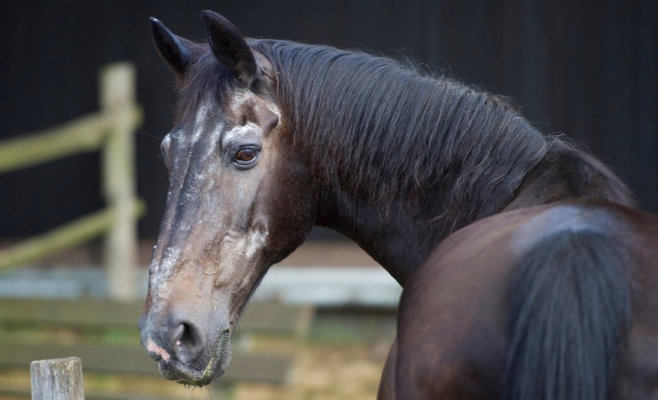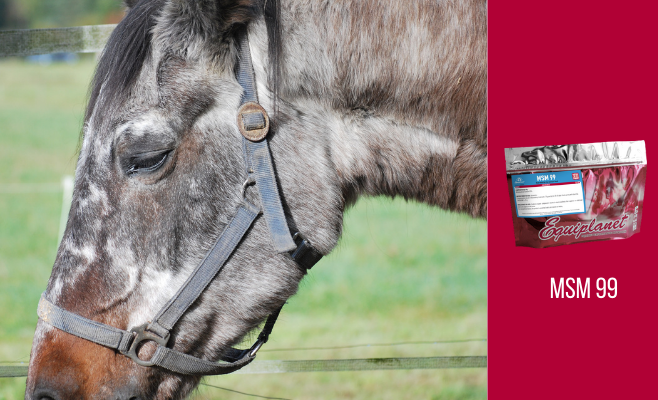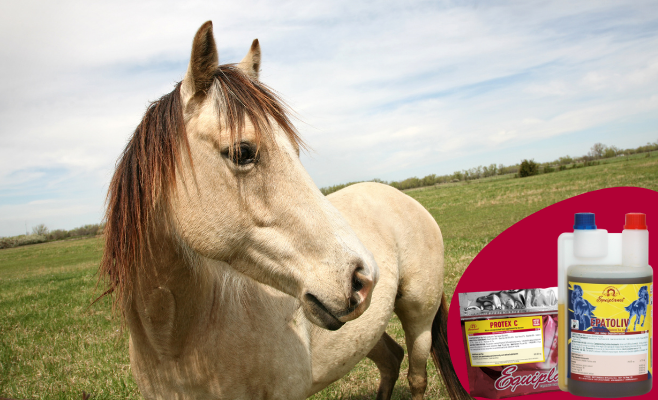
The horse’s immune system
26 March 2021
Resume Sports Activity: 3 Equiplanet Tips
19 February 2021Old Horse: Nutritional Management


In the last few years, the management, the feeding and the careful of the horses has made sure that their average life is extended by several years and we often find ourselves in the situation where we have to manage old horses. Age, experience and temperament make them the best subjects for beginners who approach to ride horse and in every equestrian school there is at least one old horse. Furthermore, old horses are often mares and breeding stallions after a sport career. Age is not a limit for sport, but at some point in their career, horses have difficult in maintaining bodyweight and are prone to slimming, especially in winter and sometimes it happens very quickly, despite having plenty of food and preserved appetite. Let’s see together how to approach the old horse from the nutritional point of view.

At what age can we include the horse among the old ones?
There are many studies done in both England and Australia, on the old horse, some include subjects over 15 years of age, others over 20 years of age. For this reason, a horse older than 15 years can already be considered old and corresponds to the age of 65 years for the man.
Training and Competition
We said in the premise that the old horse can be a sport horse. Joint trauma can be occurs daily as part of the normal wear and tear of a sports horse, leading to inflammation of the synovial membrane and joint capsule. Over time, the articular cartilage matrix may begin to degrade, eventually progressing into a degenerative problem. This is one of the most common causes of lameness and poor performance in horses. Furthermore, if a horse lives at the paddock with others, a joint problem can prevent him from reaching the manger with agility or competing with other horses to get there. For this reason, it is important to administer complementary feed to support joints as Joint Flex Plus.

What are the criticisms of old horse?
Chewing and digestion:
In the old horse some problems of mastication may appear, the dental table even if periodically controlled meets with natural wear. This can cause insufficient feed intake and thus result in gradual weight loss and it is possible to notice long fiber chunks in feces. Older horses with chewing or digestion problems may need changes in the ration. It is important to deal with nutritionists and veterinarians because every horse has its own requirements, especially if there are endocrine problems or if the inability to maintain bodyweight is secondary to non-obvious problem.
Does old horse have to change his diet?
Old horse, after the age of 15 years is not forced to change its diet. This should be done when the need arises. The most important thing for old horses is to limit starches and sugars consumption; it is better use a feed that brings fibre and fat like Fat Fiber.
If you only want to increase the calories of the ration you can use vegetable oils such as Oil Performance that provides soybean oil, flax and rice. Vegetable oils are an excellent source of fat and if they are good quality oils provide Omega 3-6 in optimal proportions. In particular, Omega 3 provides DHA and EPA that have an important protection role in degenerative conditions such as senescence. With the administration of oils, it is necessary to supplement with Vitamin E.

How to choose hay for the old horse?
Hay should always be of good quality, but often we find ourselves in front of old, dusty, poor and too lignified hay. For old horse, the hay should be soft, well digestible and eventually chopped. Avoid alfalfa hay is suggest because of its high content in calcium.
When there are chewing problems, you can wet the hay before administering it or use the cube or pellet hay. If you want to add a good source of fibre, you can add beet pulp, but always in combination with hay because it does not contain the necessary nutrients and in optimal balance to meet the needs of old horses.
Also pay attention to dusty hay that can exacerbate respiratory problems already present. To support respiratory function it may be useful to add a complementary feed to the ration with a balsamic properties such as Jodoresp, containing iodine and essential oils (mint, thyme, eucalyptus, lavender) that help respiratory physiology of the old horse.

Which are the complementary feeds advised for old horse?

Surely it is useful to promote a good digestion of the diet components, so complementary feeds containing prebiotics and probiotics such as Enterovet are recommended in old horse. These products are very important to help the intestinal bacterial population that promotes fibre digestion but is also necessary for the synthesis of group B vitamins. In case of strong deficiency of enteric function, it is recommended to supplement the diet with this vitamin group.

A good source of sulphur, like the one present in MSM 99, is surely useful in the old horse supporting the articular, gastro-enteric and respiratory system. However, sulphur is also needed for the synthesis of antioxidants substances such as glutathione that helps liver and kidneys to metabolize toxic substances produced during physical exercise.

Speaking about liver and kidneys, these are the so-called “filter organs” because of the advanced age and the overwork to which they are subjected, often need a support in order to carry out their normal functions. Epatoliv that we talked about in a previous article can be useful for your old horse. In addition, a liver that is not fully functioning is not able to produce enough vitamin C, so it is important to integrate it into the diet with special complementary feeds such as Protex C.
If you have any doubts about your old horse, how to satisfy its needs or how to recover its bodyweight, do not hesitate to send us a message to the info@equiplanet.it mailbox or to contact us via social media. The team of Equiplanet is always by your side for the welfare of horses.
To stay updated on our content follow us on Instagram
Bibliography
- Inappropriate lactation in a 15-year-old thoroughbred mare Tracy To, 2019
- Clinical Approach to Commonly Encountered Problems. Melissa T. Hines 2018
- From maturity to old age: tasks of daily life require a different muscle use in horses R.R. Zsoldos 2014
- Problems In Equine Nutrition Joe D. Pagan, 2009
- 2012 Kentucky Equine Research (KER) Conference K Crandell, equine nutritionist at KER

